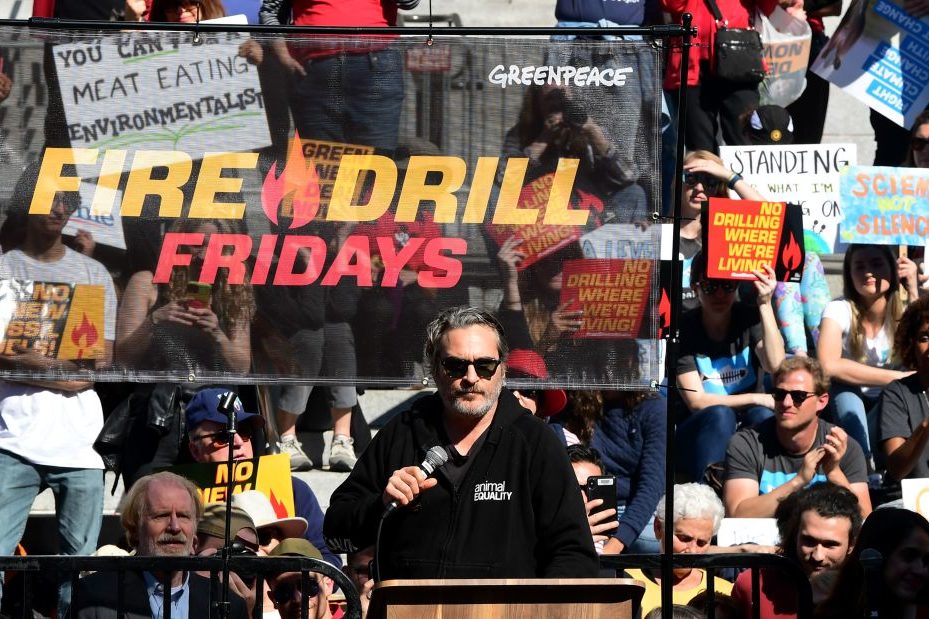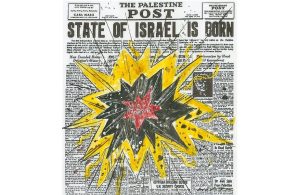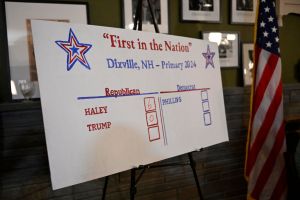Perhaps we are at least past the beginning of this crisis. The phase where the hunt for multipacks of toilet paper briefly became the national sport. Now we are into the second, perhaps even less glorious stage, in which we all have to sit in our solitude and hope that the storm blows over us. And if this passivity is the great demand of our generation — a demand that brings its own ironies — then now is a good time to ask the question: ‘How do we spend our time well?’
The question is one we ought to ask more throughout our lives. But the truth is that most of us tend to ask it only at moments of personal crisis: when a job or relationship suddenly ends, or a loved one dies. By asking ‘How do we spend our time well?’ I do not of course mean simply ‘How do we keep ourselves busy?’. There are home exercise videos for that. Even DIY, if you must. I mean: how ought we to use this time meaningfully?
An immediate urge will be — ought to be — to hold our loved ones close. Or at least as close as we can in an era in which we cannot hold them. We will satisfy the need to call each other more, wave to each other more and leave supplies — even luxuries — where we can. And if this crisis provides a surge in the strength of our networks of friends and family, then that is no small boon to stockpile.
Even an engagement diary as empty as the roads can be rescued. I have taken to arranging virtual drinks with friends, diary-ing them in as I would in normal times. So I have drinks (or tea if the hour is not yet six — a rule especially worth adhering to now), with friends around the world. And I might remark that as all drinkers know, bringing your own booze always ensures the best party.
Family and friendship are not small things, and certainly not during these days. But still the question exists at a level beneath that. Where do we find purpose? There were many oddities about the world that was ours, but one of the oddest was that it chose to leave this question essentially unaddressed. Partly this was a product of the liberal story of emancipation, which proclaimed that we were getting freer and freer but never said what we were meant to do once we had all this freedom. Other than to ‘Be ourselves’ or ‘Find meaning where you will’. There is a lot to be said for ‘Find meaning where you will’. Certainly it is better than somebody else trying to impose their idea of meaning on you. But it is still a radically different thing from a message that says ‘And there is meaning’.
During recent years, much of our society found a purpose, and a kind of meaning, in politics. Even at the time that period seemed curious. It was a period in which people who had no connection to the media felt that they needed to absorb minute-by-minute updates on everything. It was an age in which watches would beep, phones would buzz and tablets would ping with updates on things that few of us could affect and mostly wouldn’t affect us. But it gave a purpose of a kind. Worlds away though they seem now, the Stop Brexit and Stop Trump crowds (and their opposites) had a distractingly busy few years. And if they didn’t find meaning in the deepest sense (as in ‘what I would look at with pride on my deathbed’) they certainly found some of the best simulacrums around.
There is a risk that this virus also becomes ‘something to do’. A thing which — how-ever well or badly we ride it out — absorbs almost all of our time, thoughts and energies. The temptation is there in the regular news conferences and announcements. Each day brings new figures to absorb, new comparisons to make between countries. Hell, we’ve even had that hangover discussion about what to call the virus and whether referring to its origins is racist or not. Absorption in some or all of these things has already come to constitute a full-time job for many people. And I will say nothing about the number of undercover virologists who turn out to have been living among us all these years.
Still the question lingers: ‘What ought we to be doing?’ Both during and after this crisis, I would expect the political left to once again prove their ability to provide narratives and explanations. Doubtless at some point they will declare a great mission. And perhaps it will have its attractions: a call to have more doctors or care workers, for instance. Or an insistence that since we were all equal in the eyes of the virus, so we should be made more equal in other ways too. Parts of the political right will bang their own ideological drums. They will talk about the markets and much more, as if everything did not just change radically. In the era to come, who knows which of these people we will want to listen to? If any.
As a writer, I might claim to have been in training for this moment all my life. Solitude and silence have been agreeable, indeed vital, companions to me. And to that extent recent days have not been that different from any others. Apart from performing the new chores we all must carry out, I spend my days as I always do at home. Inside, I migrate between my writing desk and piano. I enjoy the garden more. And yet in the gaps that have opened up the bigger question hovers. I suppose my own answer is a doctrine of a kind. Which is that we are most likely to find meaning in the places where meaning has been found before. That what has seen our forebears through, and nourished them, will see us through and nourish us in turn. I don’t listen to the news much. If the church is open I will sit in it. I remake my acquaintance with great music. In the evenings I read Anna Karenina.
This article was originally published in The Spectator’s UK magazine. Subscribe to the US edition here.


















